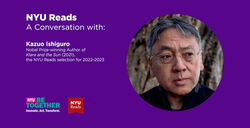Helen's work has enhanced higher-ed courses, public workshops, museum exhibitions, and live entertainment.
Learning Design
Informal Learning HT123 @ HGSE

Informed by play-based and constructivist learning, I co-crafted a research-informed design proposal reimagining video games as accessible tools to enhance AI literacy among 6-8th graders globally. Our goal is to equip the next generation to utilize AI technologies wisely and critically. Crafting scalable AI literacy learning experiences takes relentless ideation, prototyping, and iteration under the mission of empowering youth worldwide through digital media and AI literacy.

Our project aims to prepare these students with a foundation of AI awareness, critical thinking, and attitudes to become responsible, wise users and makers of AI-enabled technologies. We have also zoomed in on a sample Level 3 learner, Marissa, by sharing a learner profile to model typical behaviors, attitudes, and beliefs, as well as frustrations with AI at this stage.

In creating our core objectives, we wanted to ensure they could be assessed formatively and summatively through our research process, which can inform progress toward our objectives and their impact.

Pregame Tutorials: Introduce AI literacy focusing on what AI is, how AI works, and the benefits of AI to prepare players for the actual game. Actual Game: Save Mario's friends and fight a main villain. Each of Mario’s friends is trapped by a risk of using AI. There are different levels of game difficulty when saving Mario’s friends. After each level, players will receive a key takeaway related to that risk area. e.g., “Congratulations, you’ve completed the mission of saving Luigi.

Princess Peach asked AI to show her diverse princesses that she could follow online, but AI kept showing princesses that looked just like her. Can you help retrain her AI to diversify its ideas? The rationale for this game section is that ensuring fairness in AI involves using diverse and representative datasets, being mindful of potential biases (e.g., gender bias, racial bias, age bias, cultural bias, and disability bias during development), and continuously testing and updating AI systems.

To evaluate our impact, we designed the Bowser fight as a formative assessment because purifying Bowser requires children to use all their knowledge about AI holistically. We will also conduct background surveys before playing the game and exit surveys after the game to see whether there is an improvement in children's AI literacy skills that aligns with our objectives. For an in-depth evaluation of the impact, we will conduct qualitative interviews and focus groups with children/ stakeholders.
"Harvard Family Day"
Workshop

How Can We Explore Color through Plastics? An in-depth research-driven learning design to support children navigating the production, circulation, and spread of colors and lights. Informed by Constructivism learning theories, this activity aims to bring hands-on, authentic, immersive learning experiences co-directed by Mengqi Xu and Qingqing Zhang.

How do we navigate young children's engagement when entering a museum space? Lighting, texture, walking routes, learning materials, and check-in/out spaces all matter to the learning design of this workshop.

Utilizing the museum's wooden benches, the workshop's design is entirely hands-on, "open-air," as if young learners are sitting outside an enclosed space. Aligned with the core objectives for children to explore and practice mixing color and different textures to develop basic art literacy and imagination capacities, this workshop is located in this community space where all learners can gather together to watch, observe, try out, and share their final projects.

Every learner is different, and engaging with people of diverse cultures, backgrounds, and languages means each round of the four workshops involves re-design, co-design, and in-the-moment adjustment according to learners' engagement and interactivity.


Public Educational Forum
 At the heart of my work is the monthly educational forum I've had the privilege to co-direct: PHenomenon. This unique platform is open to the public and serves as a vibrant arena for sharing invaluable experiences. PHenomenon stands as a testament to the power of learning beyond the traditional classroom. We host a diverse array of guests – from renowned professors and captivating performers to innovative entrepreneurs and visionary leaders. |  |  Anthropology of religion, linguistics, agroforestry, Caribbean and Latin America |
|---|---|---|
 |  |  Went on public broadcasting for over 2500 TV stations. |
 |  |
 |  |
|---|
NYU Co-curricula Talks
Media Production
Consultation
Ongoing...
I am a multi-hyphenate with a passion for diving into new technologies and the art of storytelling through photography, videography, and animation. When I'm not behind the lens or the screen, I'm on a journey across the globe, embracing new cultures, tasting diverse cuisines, and learning languages.












